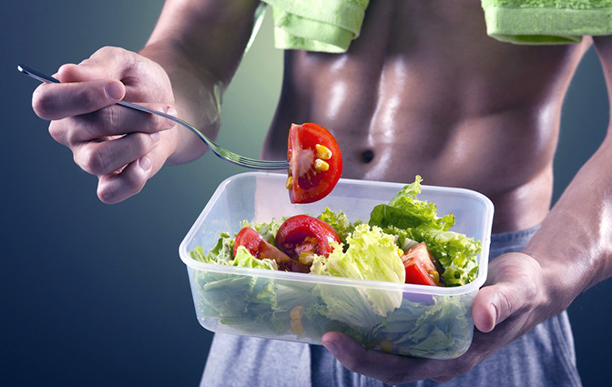One of the biggest factors that anybody looking to increase their muscle size that is often overlooked is their diet. Diet doesn’t necessarily mean to reduce the consumption of food that we put on our plates and into our body, but is defined in the Oxford dictionary simply as “the kinds of food that a person, animal, or community habitually eats.” By all means, you could actually go on a diet of just chocolate, despite it being wholly unhealthy, and still be labelled a diet!
Any successful bodybuilder will understand that they will not get the result they desire unless they spend time building diet plans that are tailored to their specific caloric and nutritional needs, to meet the results they desire.
So how important is our diet to building muscle mass? It’s essentially impossible to build muscle if you have a caloric deficit. This meaning you are eating less than what your body metabolises throughout the day.
How Should A Bodybuilder Approach Their Diet?
The simple answer is to maintain a consistent caloric surplus. Eat more than you “burn off”. However, careful planning and monitoring must be made to ensure that you don’t increase your body fat percentage to a undesired level.
There is more to increasing muscle mass than just maintaining a caloric surplus, however. Even though a caloric surplus is the essential to muscle building success, the types of food we eat also play a key role in how our body responds.
Let’s take an example: if our calorie intake throughout a day was in a surplus, but was consumed using simple carbohydrates – such as sugary food, you know…the sweets and junk we all know we should be avoided more often. With this diet, you would actually struggle to build muscle mass and instead likely increase your fat stores, as carbohydrates – especially simple sugars – when in a surplus, turns to fat in the body.
Go Back To The Raw Ingredients
It’s great to think about a diet that your grandparents lived off – wholesome foods, cooked fresh, with little to no additives, all prepared from the raw ingredients. No dreadful packet foods some of us have succumbed to. A balanced diet approach must be adopted, and by cooking with raw ingredients you will assume control over the quality of the food you consume and its caloric and nutritional qualities it holds.
What carbs do bodybuilders eat? If you want to take in good quality, vital complex carbohydrate for daily metabolic burning, the best examples could include potatoes, rice, and brown bread. Men, in particular, utilise carbohydrates more than women throughout the day – it’s, in fact, their primary energy source, the second, being fat stores. If you lack sufficient carbohydrate intake, you will notice your energy levels drop. This will have a negative impact on your training and workouts as you will have insufficient energy to properly stimulate the muscles during a workout. So make sure that you do take in enough carbohydrates for your personal needs.
If you can work out roughly your daily calorie requirements and match the carbohydrates to this number, then this will be a cheaper way to eat. What you should achieve is to match your carbohydrate intake to your caloric needs and then the proteins and the small amounts of fats could be utilised to take you over that threshold into a caloric surplus.
With some planning your protein intake will top off your carbohydrate intake, moving you into a caloric surplus just enough so that you don’t put too much fat on. The protein will aid in protein synthesis – growing and building your muscles in size.
Remember the greens! Many novice lifters often lack sufficient vitamin and mineral intake due to the lack of fruit and vegetables in their diet – Big Mistake! Fruits and vegetables help in these metabolic processes, without them your growth and development will stagnate – so work these into your diet.
Finally, fluids – make sure you are drinking enough fluids as without sufficient fluids these metabolic processes will not be so efficient, which means again, the growth rate will slow or stop.


Greetings! Very helpful guidance on this article! It truly
is the little changes that make the largest changes.
Thanks a lot for sharing!